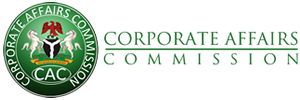,
The Director General of NAFDAC in her commitment to Food Safety and Nutrition in Nigeria attended the 41st session of the Codex Alimentarius Commission (CAC) in Rome, from 2nd to 6th July 2018. CAC is the central part of the Joint Food and Agriculture Organization/World Health Organization (FAO/WHO) Food Standards Programme and was established by FAO and WHO (agencies of United Nations) to protect consumer health and promote fair practices in food trade.
The Codex Alimentarius is a collection of internationally adopted Food Standards and related texts presented in a uniform manner. These Food Standards and related texts aim at protecting consumers’ health and ensuring fair practices in the food trade. This is consistent with NAFDAC’s mandate, which includes among others, to regulate and control importation, exportation, manufacture, advertisement, distribution, sale and use of food.
The CODEX meeting, which adopted new food standards, is a gathering of top food scientists and regulators from around the world and includes other interested organisations, some participating as observers. On behalf of Nigeria, the Director General made several positive interventions (scientific contributions) on agenda items being discussed during the meeting.
Some of the comments below are included in her contributions:
- Agreement with other member states that CAC should follow procedural manual with respect to considering safety of food additives but should also take cognizance of new scientific data to support standards, realizing that science is dynamic. Standardized daily intake of food additives should also be included in the manual.
- Emphasis should be made on use of Standard Operating Procedures (SOP) in review of CODEX standards.
- In matters arising, she thanked the Commission for highlighting the effect of soil contamination on food safety, the problems of unhealthy diets high in sodium, sugars and fats, including trans-fat,and the dangers of alcohol abuse. Quoting from FAO/WHO report, “Harmful use of alcohol is a major obstacle to sustainable development, it has an impact on the health and well-being of the drinkers and their friends, family, colleagues and can damage the social and economic fabric of society. The harmful use of alcohol is a causal factor in more than 200 disease and injury conditions, affecting maternal health and child development, non-communicable diseases and conditions such as cancer, violence, road safety, mental health and infectious diseases such as TB and HIV/AIDS”.
She remarked that alcohol is available in sachets In Nigeria and that these products are dangerous to children due to ease of accessibility. She added that efforts are been made by NAFDAC to control such products by holding back on further registration of alcohol in such packaging.
- Contributing further, she expressed need to exercise caution in the use of endocrine-disrupting chemicals in pesticides expressing concern on effects these might have on the health of Nigerians.
- She also thanked the CAC for setting aside a Food Safety day that will start in 2019 and that NAFDAC will support the celebration of the day.
Participation of the Director General NAFDAC in the meeting is further borne out of her desire to ensure that food regulations to be drawn out of the new standards will benefit the Food industry in Nigeria; Association of Food Beverage and Tobacco Employees (AFBTE) and the Micro Small and Medium Scale Enterprises (MSMEs) who are the major players in the sector.
Furthermore, the meeting provided an avenue for knowledge sharing which will eventually be of immense benefit in ensuring that Nigerian food products for local consumption and for export are in conformity with relevant international standards.
Respective NAFDAC‘s directorates – Food Safety and Applied Nutrition, Registrations and Regulatory Affairs and Laboratory Services (Food) – all work together to ensure that the standards set by CODEX are adopted in the approval process of all applications and registrations related to food and water.
DG NAFDAC






